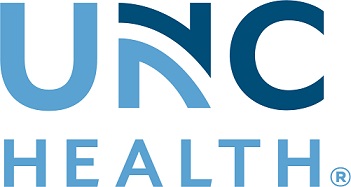Note to media: Dr. Kathleen Light can be reached at 919-966-2544 or [email protected].
UNC-CH School of Medicine media contact is Lynn Wooten, 919-966-6046 or [email protected].
By LESLIE H. LANG UNC-CH School of Medicine
(EMBARGOED) CHAPEL HILL, N.C. - Researchers at the University of North Carolina at Chapel Hill have found that responses to stress during early adulthood could help predict one's risk for high blood pressure 10 years later.
"We discovered that cardiovascular stress responses could help us predict who developed borderline to mild hypertension 10 years later," says study leader Dr. Kathleen Light, professor of psychiatry at the UNC-CH School of Medicine and director of the university's Stress and Health Research Laboratory. "The study underscores the fact that we need to look at environmental as well as genetic factors in determining hypertension risk."
The new findings, which come from a 10-year follow-up of 103 male UNC-CH alumni who had been tested in the study when they were 18-22 years old, highlight an interaction between those factors.
Former students having a family history of hypertension - one or more parents with high blood pressure - were at slightly less than twice the risk of developing hypertension compared to a student without a family history. But former students with a positive family history of hypertension who also showed high cardiovascular responses to stress in their college years were at more than seven times the risk of developing hypertension.
"We did find one other thing," says Light. "Those individuals who reported having a high-stress lifestyle plus a family history of hypertension and who were high cardiovascular responders to stress were at even greater risk."
A report of the study appears in the issue of the journal Hypertension published June 17.
In 1982-83, Light and her UNC-CH colleagues obtained baseline measurements of study participants' blood pressure. None had hypertension when they entered the study. In addition, their blood pressure and heart rate changes were measured in response to two laboratory stresses: a reaction-time task in which they avoided a shock if they pressed a button fast enough upon a visual signal (no shocks were actually delivered); and a "cold pressor test," in which the subject's foot is immersed in a bucket of ice water for 90 seconds.
The "high stress responsivity" group was defined as the top 25 percent in both blood pressure and cardiac rate increases during the two stress situations.
During the 1992-93 follow-up 10 years later, standard clinical measures of blood pressure were recorded, either by personal physicians or through the UNC-CH medical school. In addition, blood pressure was recorded via ambulatory blood pressure monitoring. The men also completed a medical history and standardized questionnaire that tapped current life stresses.
"And then we looked back at their laboratory responses 10 years earlier," Light says. "We found that the combination of being in the top 25 percent in stress responses, plus having at least one parent with hypertension, was associated with a risk of being 7.5 times more likely of developing borderline or mild hypertension compared to someone who had neither of those risk factors."
"And the highest pressure levels 10 years later were seen when high life stress was reported by high stress responders and/or men with hypertensive parents," Light adds. "These findings tell us that both genetic susceptibility and environmental exposure factors like stress need to be studied at the same time because they work together and on each other to shape the risk of hypertension."
Along with Dr. Light, UNC-CH co-authors include Dr. Susan S. Girdler, Edith E. Bragdon, Dr. Kimberly A. Brownley, and Dr. Alan Hinderliter. Other co-authors are Dr. Andrew Sherwood of Duke University and Dr. Sheila G. West of Ohio State University. The study was supported by grants from the National Institutes of Health.
-- 30 --
